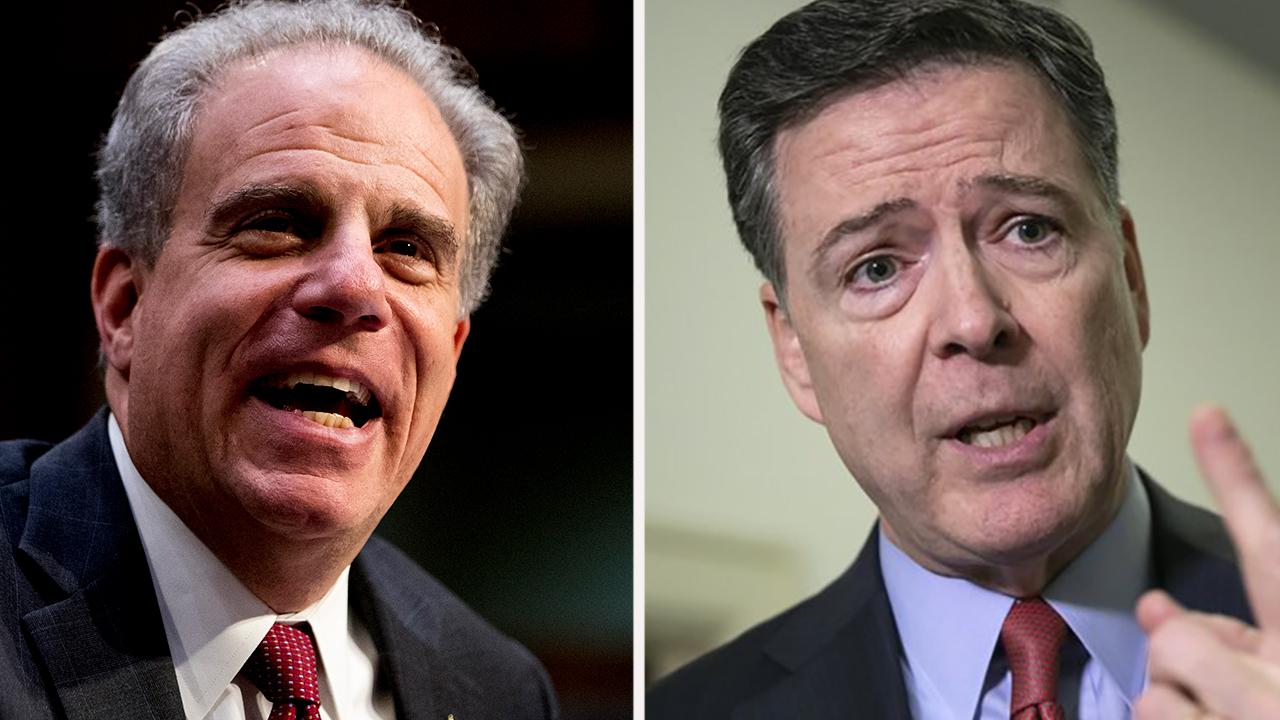[ad_1]

All of that is well and good, but he nears the end of 2019 also as a candidate who has absorbed more criticism that just about everyone else in the Democratic field combined, and he has survived the attacks reasonably well. He remains atop the national polls, his support among African Americans has proved durable through the year, and while his numbers have slipped in Iowa and New Hampshire, he is nonetheless in the battle in those two early voting states.
The story of Biden for most of the year has been written as a glass-half-empty narrative. What about the opposite way of viewing where he stands? I recently asked a Democrat who has been involved in a series of presidential races this question: What if Biden were to win the Iowa caucuses? His answer: “He could run the table.”
This Democrat was not predicting it; nor was he ruling it out. But if Iowa falls into Biden’s column, it would instantly change the way everything looks at the 2020 field and the potential outcomes.
This has happened before. In December 2003, then-Sen. John F, Kerry (D-Mass.), the perceived early front-runner, was in all kinds of trouble. He was running behind in Iowa and New Hampshire and was down in the polls nationally. His campaign had been through a staff shake-up that left supporters lacking in confidence. He seemed to be floundering.
Even some of Kerry’s closest advisers were saying privately, just weeks before Iowa, that Howard Dean was the likeliest person to win that state and to become the party’s nominee. Then Kerry won Iowa, and the opposition melted away. He went on to win New Hampshire eight days later and cruised to a nomination he was being given no chance to capture only a few months earlier.
Most remember that Kerry surged in the final days of the campaign to overtake Dean. In reality, he won Iowa in the period the Democratic race is now going through, the weeks between mid-November forward to the caucuses. It was more than just a late surge. Kerry went all in long before the final weeks — all in financially, organizationally and with his own time and energy.
In the closingdays of that campaign, Kerry tried to be in every media market in Iowa every day, with the help of a helicopter and a private plane. He also got some breaks toward the end that helped tip the race: a surprise endorsement from a fellow Vietnam veteran whose life Kerry had saved and attack politics between Dean and then-Rep. Richard Gephardt (D-Mo.) that hurt both of them.
Strategically, Iowa loomed as a more crucial test for Kerry than it might for Biden. The former vice president continues to hold the lead in South Carolina polls, thanks to his support in the black community. That is his potential firewall. Biden might be able to survive a loss in Iowa, a scenario Kerry and his team weren’t sure his campaign could survive.
In Iowa, South Bend Mayor Pete Buttigieg is currently leading in the polls, but the RealClearPolitics average shows the top four candidates bunched between 16 percent and not-quite-23 percent. The organization of Sen. Elizabeth Warren (D-Mass.), who has faltered recently over her health-care plan, among other things, has long been rated the best in the state. Sen. Bernie Sanders (I-Vt.) nearly defeated Hillary Clinton in Iowa in 2016 and maintains a loyal base that is financially self-sustaining — unusual among the candidates.
But all have challenges of their own to overcome: Can Warren rebound? How durable is Buttigieg? While Sanders has a solid base, how much further can he expand it?
And lately Buttigieg and Warren have been sniping at one another, sensing perhaps that they share a pool of well-educated white voters; a low-level version of the Dean-Gephardt warfare of 16 years ago, which is good for Biden.
“The reason why he [Biden] hasn’t faltered at least at the national level is because there are real, persistent fears about all the other candidates,” said a Democratic strategist who asked not to be identified to share perceptions of the contest.
Biden was the high profile candidate earlier in the race. Now that’s less the case, to his benefit. He was high profile not just because he was a former vice president but because he entered the race amid controversy, much of it self-generated. His past record came under scrutiny, on issues of race and criminal justice and how he allowed Anita Hill to be treated during the confirmation of Justice Clarence Thomas. His penchant for putting his hands on people, especially women, forced him to promise to reform.
He was the target of attacks in the early debates, but he weathered the criticism of summer and early fall. And though his debate performances often left something to be desired, he has managed to maintain a level of support and good will.
Also, none of the adversity has caused any public display of staff turmoil or internal warfare in the Biden camp. His campaign has remained tight and mostly free of damaging leaks from disgruntled staffers.
“This just reminds me so much about 2004,” said another Democratic strategist who was involved in the campaigns that year and who also asked not to be identified to offer a candid assessment. “Nobody is crazy about any of the candidates. There’s no real movement candidate [like Barack Obama in 2008] …. People are trying to think about what they can accept.”
Kerry’s message in Iowa in the closing 60 days was, “Don’t just send them a message in January. Send them a president.” A variation of that is Biden’s message: Don’t just look for inspiration, look for reassurance. That message could have even greater resonance after the shellacking that a British Labour Party with a left-wing agenda and left-wing leader suffered Thursday.
Whether Biden is capable of delivering his message with consistency and clarity could be the difference between winning and not winning in Iowa.
It isn’t known whether Biden has committed quite as much to Iowa as Kerry. He did an obligatory bus tour recently, but the real test will come in January, when Sanders and Warren and the other senators in the field (Minnesota’s Amy Klobuchar, New Jersey’s Cory Booker and Colorado’s Michael F. Bennet) are tied down with the Senate impeachment trial. Will he truly gamble on Iowa? Or will he play it safe, believing he can recoup elsewhere from an early defeat?
There has been much discussion about what might happen to Biden’s candidacy if he were to lose Iowa and New Hampshire. (The Granite State could be challenging given the fact that Warren, Sanders and now former Massachusetts governor Deval Patrick are all New England neighbors.) The assumption of his rivals is that losing those first two races would put him in a deep hole.
But consider the opposite: Not what Biden risks by losing Iowa but what he could gain by winning the state. Most of the leading Democrats could win the caucuses and still face major obstacles. Biden, due to the lowering expectations that has come with his slipping Iowa poll numbers and the fact that he has broader support nationally than other candidates, stands to gain the most from winning.
As a candidate, Biden still must persuade many voters that he’s their safest and best choice to beat President Trump. He’s quite capable of falling short in the final weeks of campaigning in Iowa, through missteps, lack of energy or a muddled message. But a victory in Iowa would pay unmistakable dividends. As the New Year approaches, will that truly be his goal?
[ad_2]
Source link



Connect with us on our socials: